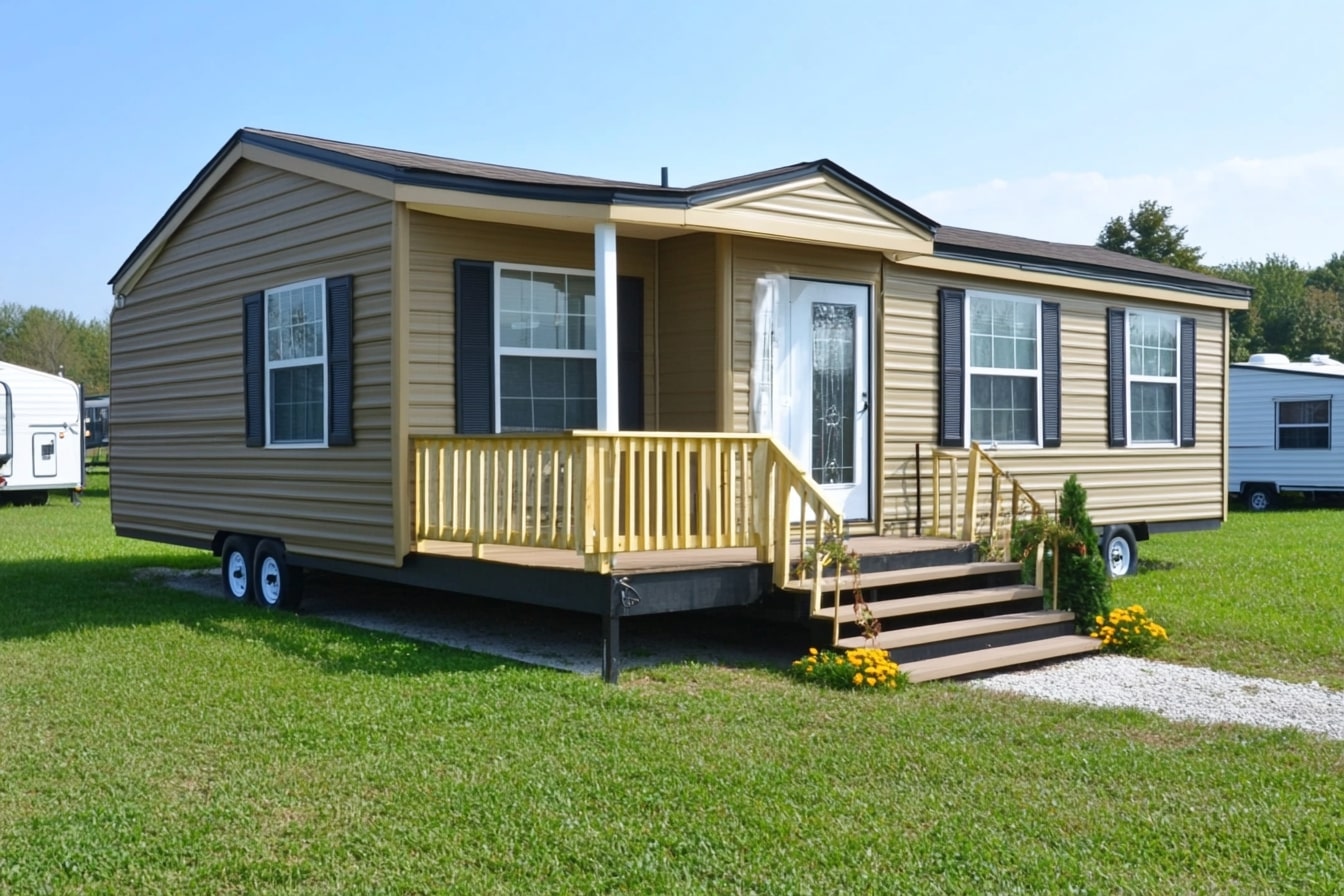Mobile Homes and Trailers: Affordable Housing Solutions for Modern Living
Mobile homes and trailers have become increasingly popular as affordable housing solutions in today's real estate market. These versatile dwellings offer a unique blend of comfort, flexibility, and cost-effectiveness, making them attractive options for a wide range of individuals and families. From retirees looking to downsize to young professionals seeking affordable homeownership, mobile homes and trailers provide a practical alternative to traditional housing.

Another benefit is the potential for a simplified lifestyle. Mobile homes and trailers often have smaller footprints, which can lead to reduced maintenance costs and lower utility bills. This aspect is particularly appealing to those looking to downsize or minimize their environmental impact. Furthermore, many modern mobile homes and trailers are designed with energy efficiency in mind, incorporating features such as improved insulation and energy-efficient appliances.
How do residential parks factor into mobile home living?
Residential parks play a crucial role in the mobile home and trailer ecosystem. These communities are specifically designed to accommodate mobile homes and often provide a range of amenities and services. Many residential parks offer well-maintained grounds, community centers, and recreational facilities, fostering a sense of neighborhood and belonging among residents.
Living in a residential park can be an attractive option for those seeking a balance between independence and community. Residents typically own their mobile homes but lease the land, which can result in lower overall housing costs compared to traditional homeownership. Additionally, many parks cater to specific demographics, such as seniors or families, creating tailored living environments that meet the needs and preferences of their residents.
Are mobile homes and trailers suitable for retirement living?
Mobile homes and trailers have become increasingly popular among retirees looking for affordable and comfortable living options. The lower costs associated with these dwellings can help stretch retirement savings further, allowing seniors to maintain a good quality of life without the financial burden of a traditional home.
Many residential parks cater specifically to retirees, offering age-restricted communities with amenities tailored to older adults. These may include on-site healthcare services, organized social activities, and maintenance assistance. The compact nature of mobile homes can also be advantageous for seniors with mobility concerns, as they often feature single-level layouts and are easier to navigate than larger homes.
How do mobile homes and trailers contribute to affordable housing?
In an era of rising housing costs, mobile homes and trailers play a significant role in providing affordable housing options. These dwellings offer a path to homeownership for individuals and families who might otherwise be priced out of the traditional housing market. The lower initial cost and reduced ongoing expenses associated with mobile homes can make them an attractive option for first-time buyers, low-income households, and those looking to reduce their housing expenses.
Furthermore, mobile homes and trailers can help address housing shortages in certain areas. Their relatively quick setup time and ability to be placed in various locations make them a flexible solution for communities facing housing crunches. Some local governments and organizations have even explored using mobile homes and trailers as part of their strategies to combat homelessness and provide emergency housing.
What should you consider when downsizing to a mobile home or trailer?
Downsizing to a mobile home or trailer can be an excellent way to simplify one’s lifestyle and reduce living expenses. However, it’s important to carefully consider several factors before making the transition. First, assess your space needs and determine if the typically smaller footprint of a mobile home or trailer will accommodate your lifestyle and possessions. This may require decluttering and prioritizing which items to keep.
Consider the location options available for mobile homes and trailers in your desired area. Research residential parks, their amenities, and any restrictions they may have. Additionally, look into zoning laws and regulations regarding mobile homes on private property if you’re considering that route.
Financial considerations are also crucial. While mobile homes and trailers are generally more affordable than traditional houses, it’s important to factor in potential costs such as lot rent, utilities, and maintenance. Additionally, be aware that financing options for mobile homes may differ from those for traditional real estate.
| Type of Housing | Average Cost | Key Features | Typical Lot Rent |
|---|---|---|---|
| Single-Wide Mobile Home | $40,000 - $80,000 | 600-1,300 sq. ft., 2-3 bedrooms | $200 - $400/month |
| Double-Wide Mobile Home | $75,000 - $150,000 | 1,000-2,500 sq. ft., 3-4 bedrooms | $300 - $500/month |
| Park Model RV | $20,000 - $50,000 | 400 sq. ft. or less, often used for vacation homes | $150 - $250/month |
| Manufactured Home | $60,000 - $150,000 | Built to HUD code, often larger than mobile homes | $300 - $500/month |
Prices, rates, or cost estimates mentioned in this article are based on the latest available information but may change over time. Independent research is advised before making financial decisions.
Mobile homes and trailers offer a compelling housing solution for those seeking affordability, flexibility, and a simpler lifestyle. Whether you’re a retiree looking to downsize, a young family starting out, or someone interested in minimizing their living expenses, these dwellings provide unique advantages. By carefully considering your needs, researching your options, and understanding the associated costs and regulations, you can determine if a mobile home or trailer is the right choice for your housing needs.






